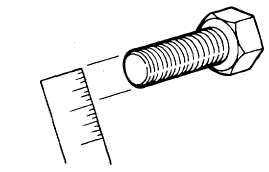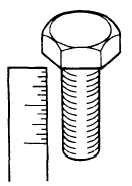F-1 GENERAL
TM 9-2815-237-34
APPENDIX F
TORQUE LIMITS
This section provides general torque limits for screws used on the M998 series vehicles. Special torque limits
are indicated in the maintenance procedures for applicable components. The general torque limits given in
this appendix shall be used when specific torque limits are not indicated in the maintenance procedure.
Unless otherwise specified, standard torque tolerance shall be ± 10 percent. These general torque limits
cannot be applied to screws that retain rubber components. The rubber components will be damaged before
the correct torque limit is reached. If a special torque limit is not given in the maintenance instructions,
tighten the screw or nut until it touches the metal bracket, then tighten it one more turn.
F-2. TORQUE LIMITS
Table F-1 lists dry torque limits. Dry torque limits are used on screws that do not have lubricants applied to
the threads. Table F-2 lists wet torque limits. Wet torque limits are used on screws that have high pressure
lubricants applied to the threads.
F-3. HOW TO USE TORQUE TABLE
a. Measure the diameter of the screw
you are installing.
c. Under the heading SIZE, look down the left-hand
column until you find the diameter of the screw you
are installing (there will usually be two lines
beginning with the same size).
d. In the second column under SIZE, find the number
of threads per inch that matches the number of
threads you counted in step b.
CAPSCREW HEAD MARKINGS
Manufacturer’s marks may vary.
These are all SAE Grade 5
(3-line).
e. lb find the grade of screw you are installing, match
he markings on the head to the correct picture of
CAPSCREW HEAD MARKINGS on the torque
table.
f. Look down the column under the picture you found
in step e. until you find the torque limit (in lb-ft or
N•m) for the diameter and threads per inch of the
screw you are installing.
b. Count the number of threads
per inch.
F-1
|
|






